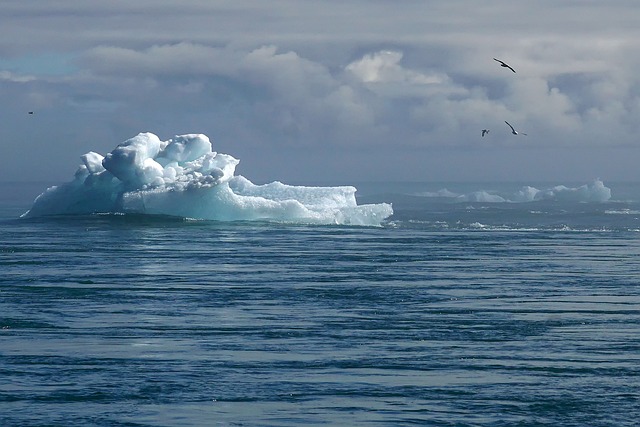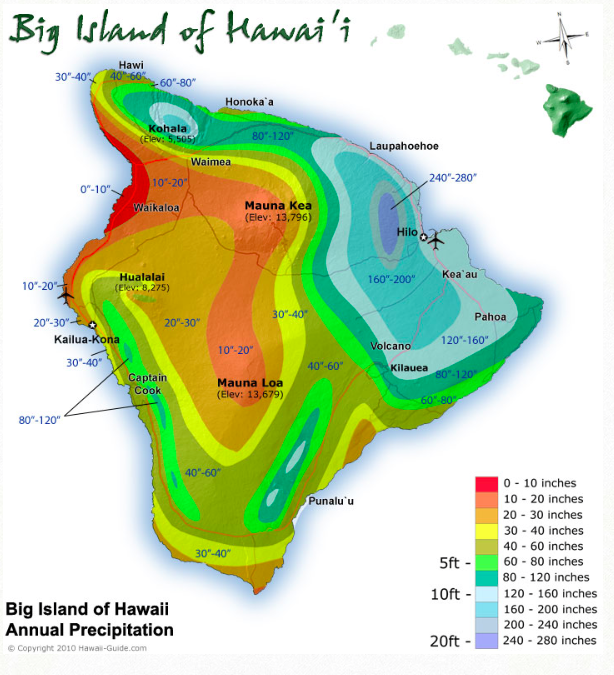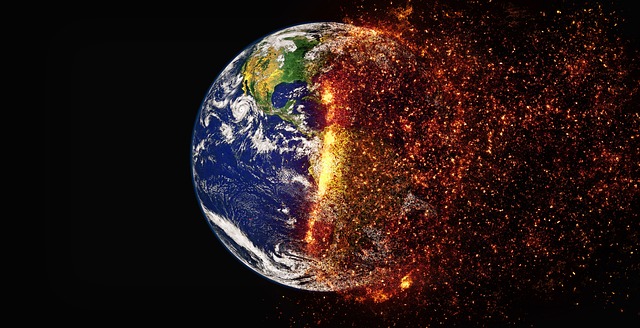
Global climate change is a serious issue that impacts all human lives. The impacts of this phenomenon have been studied by scientists in many ways. These impacts include changes in weather patterns and the loss of biological diversity. It is crucial that governments take action to limit the negative effects of this trend.

In order to provide a broad picture of the current global research on climate change, a bibliometric study was conducted. The study compares scientific output from different countries and regions in order to determine the most relevant aspects of the subject. For this purpose, a database of 40,062 articles on climate change were evaluated. These articles were extracted from the World of Science database. This analysis of publications based on ecological, socioeconomic, and technological factors allowed for a comprehensive assessment of the state of the art.
Researchers have shown that the ocean heat content is on the rise. The Arctic is heating up twice as fast than the rest of the globe. As a result, sea levels are rising rapidly. As a result, cities of great size and coastal ecosystems around the globe are most at risk from the negative effects of climate change.
Scientists have examined a variety of factors that influence the Earth's energy balance. However, scientists also use sophisticated models to predict the future climate. Most of these models illustrate that the developing world is facing an enormous burden of climate impacts. These models do not accurately reflect what has happened. This is why reliable estimates of the impacts of climate change are essential to research.
Although scientists have collected a lot more evidence in support of global warming, it is still difficult for them to accurately project its actual effects. All mitigation strategies must be based upon a reliable estimate of the impact of climate change. Global Climate Risk Index is a data source that provides information on the severity and frequency of weather events for various years.

Global climate change can also be measured by the increase in greenhouse gas concentrations. Research shows that the rate of increase has been unprecedented over the last century. Human activities have led to an increase in atmospheric CO2. These gases also trap more heat from the Sun. According to research, the rate of warming over the past century is 10 times faster than the rate of warming over the last decade.
Melting ice sheets and rising heat in the ocean are two other signs that the earth's surface is changing rapidly. These changes can have a devastating impact on human life, including the supply of food and water. There are already indications that extreme weather events may increase due to climate change. Despite the numerous indicators that climate is changing, governments have yet take meaningful action to mitigate its consequences.
FAQ
What is the current status of the global climate, and how is it changing in the future?
The current state of the global climate is one of unprecedented change and uncertainty. Unprecedented levels in atmospheric carbon dioxide are causing global temperatures to rise significantly. This can lead to droughts and heat waves as well changing rainfall patterns, melting Polar ice caps, ocean acidification and rising sea levels.
These changes already have a profound impact upon ecosystems around the globe and are causing extinctions as well as disruption of habitats. They are also threatening lives and livelihoods for billions of people, especially those who live in areas with resource scarcity.
Increased average surface temperatures, which are caused by human activity, have led to an increase of extreme weather events, such as hurricanes or cyclones. As temperatures rise, this trend will likely continue.
Global climate change can have a wide range of effects, including rising food security and displacement caused by extreme weather or sea-level rise forcing communities to relocate. Climate change is also causing social inequalities, bydisproportionately affecting marginalized groups that lack the knowledge or resources to adapt effectively.
While some countries have made progress in reducing carbon emissions, or implementing renewable energy initiatives, global action has not been taken at the level necessary to combat these changes. To prevent further destruction and devastation caused by climate change, all countries must work together to take immediate action and plan for adaptation in an ever-changing world.
What is the status of international efforts to tackle climate change?
The current state of international efforts to address climate change is one of unprecedented unity and momentum. International efforts to address climate change are being facilitated by countries around the world, who are increasingly working together to reduce carbon emissions, improve resilience and invest in renewable energies.
At the global level, the Paris Agreement has galvanized collective action and serves as a framework for individual countries to set voluntary targets for reducing emissions. The UN Framework Convention on Climate Change is also providing guidance to policy and piloting innovative initiatives, such as carbon market mechanism.
Other regions are seeing progress. The European Green Deal is a comprehensive legislation package that seeks to create a European economy with sustainability as its core. Countries on the African continent also have committed to The African Renewable Energy Initiative, which aims increase Africa's participation in global renewable energy production.
Along with policy changes, action can be observed across all sectors and industries. Cities are actively moving toward sustainable public transport systems. Society as a whole is moving towards more sustainable lifestyles. Companies invent technologies that reduce carbon emissions. Investors are shifting their capital away to renewables.
The OECD committee represents wealthy countries and has established common standards for reporting national climate action through the Common Reporting Framework, also called the 2021 Guidelines.
These efforts signify a new level of importance for climate action. If there is any hope of meeting the science-based Climate Goals, all stakeholders (governments, civil societies, and private sectors) must continue to build on their momentum and push for greater ambition & progress.
What are the roles of individuals and communities when it comes to addressing climate change?
Climate change is one of the biggest contemporary challenges we face today. This issue affects everyone. It requires both our collective attention and individual action to make a positive difference.
Individuals play a key role in combating climate change and reducing its effects. Everyday behaviors can include anything from reducing waste and consuming consciously, going through changes in lifestyle such as switching to a vegetarian diet, consuming less meat, using public transportation more often, and choosing more sustainable materials in clothing and home decor. They can also be involved in political advocacy, and encourage initiatives within their communities that foster sustainability.
It is important that communities are involved in the larger climate change effort. They can implement policies that limit emissions by reformulating energy models based on renewable sources, promoting efficient infrastructure for cycling or electric transportation, reducing deforestation rates, or encouraging composting systems for waste management. This mission requires collaboration between communities in different cities and countries.
Moreover, civic education on the threats posed by climate change, as well as on ways to contribute positively towards tackling it needs to be implemented from the early stages of education acquisition throughout lifelong learning opportunities. This will allow individuals to be more aware and connected to other societies, even if they are not located near us.
Employers are ultimately responsible for fighting climate change. They can introduce corporate practices that emphasize sustainability and choose green alternatives whenever they are possible. This will have positive sociological and economic outcomes.
Individual and community actions combined with policies at the local level, as well as business transformation, will make a huge contribution to addressing global warming. They also help to protect humanity from long term harmful effects resulting from climate change.
How can developing countries and communities cope with the effects of climate changes?
Because of their limited access and lack of technology and healthcare, the impact climate change has on developing countries and communities is particularly severe. Temperature, precipitation, sea levels, and rainfall changes put additional pressure on already scarce resources. Additionally, floods and droughts cause havoc in already fragile ecosystems. Rising temperatures can cause decreased crop yields. This will have a significant impact on poorer communities suffering from food insecurity. Moreover, extreme weather events such as heatwaves and hurricanes can result in the destruction of infrastructure and displacement of people, further perpetuating economic inequality.
The long-term implications of climate change include continued resource scarcity, poverty, and health impacts including an increased number of vector-borne diseases such as malaria or dengue fever. In addition, there will be a higher risk of flooding due to rising sea levels coupled with extreme weather events putting lives at risk in coastal areas where populations often lack the adequate infrastructure or emergency services needed for evacuation. While mitigating greenhouse gases is essential to build resilience to these risks, there are other options available. These include better management of freshwater resources and easier access for health facilities. This helps with the prevention of diseases such as malaria.
What are the impacts of climate change on society and the environment?
Climate Change can have broad impacts on society as well as the environment. Rising global temperatures, extreme weather events, sea level rise, and decreased air quality are just some of the environmental impacts of climate change. These changes can have severe consequences for human populations. They can lead to instability, increased poverty, insect-borne diseases and altered migration patterns.
Already, climate change is having an enormous impact on the environment as well as societies around the globe. This is expected to get worse as global temperatures continue rising.
Ocean levels rising due to melting ice caps is one of the most pervasive effects of climate change worldwide. This results in coastal erosion and increased flooding risks for coastal communities. Saltwater intrusion can also happen, affecting freshwater supplies to coastal regions of many countries.
Due to climate change, extreme weather phenomena such as heatwaves/droughts frequently occur across many countries in the world. These events cause massive destruction to homes, businesses, and sometimes even wipe out entire towns. Extreme storms also present risks of flooding or landslides which can cause further damage to infrastructure, such as roads and railways.
Also, wildfires due to climate change are occurring more often than ever. These fires can cause severe damage to habitats and the lives of people living close by.
These dramatic changes in living conditions can often lead to displacement and even refugee crisis when people leave their homes voluntarily or involuntarily due to their changing climate.
The increase in aridity causes dust storms to become more frequent, which makes people suffering from asthma and other respiratory ailments such as asthma even more vulnerable. Furthermore, pest infestations are predicted to rise in tandem with warmer temperatures. This phenomenon is known as the 'greenhousebug'. Global food insecurity will continue to grow as fewer crops have lower nutritional qualities. This could potentially lead to more hardships for people already struggling to make ends work.
Statistics
- Indigenous peoples and local communities receive less than 1% of all climate funding despite scoring wins for people and nature Africa's broken food markets must be fixed to tackle hunger (climatechangenews.com)
- According to the 2014 report on Climate Change Impacts, Adaptation, and Vulnerability (page 8) from the United Nations Intergovernmental Panel on Climate Change, governments at various levels are also getting better at adaptation. (climate.nasa.gov)
- Fossil fuel production must decline by roughly 6 percent per year between 2020 and 2030. (un.org)
- The 10 countries with the largest emissions contribute 68 percent. (un.org)
- This source accounts for about 10% of all the water that enters this highly productive farmland, including rivers and rain. (climate.nasa.gov)
External Links
How To
How to make your home more efficient and fight climate change
Your home's energy efficiency is one of the most cost-effective ways to cut your carbon footprint, lower your utility bills, and improve your quality of life.
Make sure your home is well insulated and sealed. Check that windows and doors are properly fitted. Add weather stripping to any drafts and seal any gaps between the window frames and door frames.
Insulate walls, ceilings and floors for maximum energy efficiency. Make sure to inspect the attic and any other areas in your home for air leaks.
Lighting accounts for up to 18% of total household electricity usage so make sure you switch to LED light bulbs which use up to 80% less electricity than traditional incandescent ones! By installing motion sensors or timers, you can save even more money by turning off lights when not required.
It is possible to reduce your energy costs by replacing an old boiler or furnace. Newer models are more efficient. Get a programmable thermostat to adjust the temperature depending on whether people are at home or not.
Double-glazing windows can be replaced with better insulation. They also prevent heat from escaping through the glass. Look into buying low-flow showerheads which reduce water consumption while maintaining adequate pressure levels.
ENERGY STAR rated items can be used to replace appliances that consume up to 50% less power than noncertified models. Do not forget to unplug electronic devices, such TV boxes or phone chargers, when not in usage. This can help you save considerable energy.
These few simple steps will make your home more energy efficient and reduce your carbon footprint.